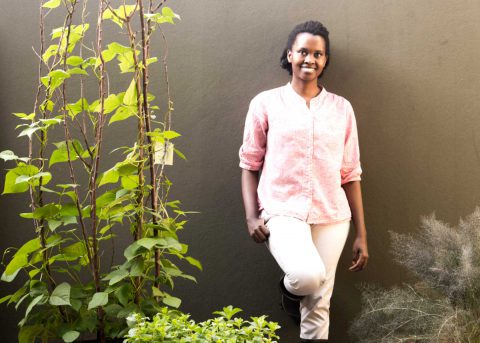Celebrating Women
Women-Owned Businesses On The Rise
As unemployment, globalisation, automation, market disruption and other phenomena have decimated traditional industry, entrepreneurship has shifted from being fashionable to a real imperative.
According to Gugu Mjadu, executive general manager at Business Partners Limited, despite South Africa’s sluggish economic growth, there are several sectors that are set to thrive. She points to the ICT sector as one that continues to perform well.
“SMEs can take advantage of the implementation of data fibre cables and Wi-Fi masts as well as products and services providing related technical support services,” says Mjadu. She also points to green economy industries such as renewable energy and energy-efficiency solutions, saying they present entrepreneurs with opportunities to find creative ways of addressing critical energy- and environment-related challenges. “Creativity is where even small start-ups can thrive,” she notes.
One such creative start-up is the Village Market, a beekeeping entity that sells raw honey to retailers, wholesalers and manufacturers. Founder Portia Morudi says: “Beekeeping can play a pivotal role in achieving sustainable rural development, as it offers livelihood opportunities and generates income — provided a market opportunity is available — while contributing towards food security and the conservation of biodiversity.”
In line with this, the Industrial Development Corporation (IDC) indicates that light manufacturing as well as agro-processing industries are potential new growth frontiers, and they are looking to increase funding to these industries.
Morudi explains that theirs is an innovative business model that links conservation, rural producer initiatives and markets in a mutually beneficial relationship enabled by world-class processes.
Making more funding available
As a funding institution, the IDC is aware that capital is often stated as the biggest hurdle to growth for entrepreneurs. Lizeka Matshekga, Divisional Executive for Agro, Infrastructure and New Industries at the IDC, says that they are committed to helping young entrepreneurs succeed. In fact, in the past financial year ending 31 March 2018, the corporation injected R15.4-billion into various sectors of the economy.
Specifically, approvals in support of government’s black industrialist’s programme increased by 67 per cent to R7.9-billion, and businesses in which women own more than 25 per cent of the shares accounted for R2.2-billion of the overall R16.7-billion approved to businesses for the financial year. Funding approvals in support of women entrepreneurs reached R6.5-billion over the three-year period to 2017/18 — exceeding the R4.5-billion target set for the period to 2019/20, while cumulative approvals for youth-empowered businesses increased to R4.4-billion over the same period.
As the age of the fourth industrial revolution gets a foothold, Matshekga points out that South Africa has a young population that is technology-savvy and wants to catch up on trends with the rest of the global community.
However, Mjadu advises business owners to do their research to ensure they are able to take advantage of this and be competitive. “It appears that SME owners are aware of this, because 80 per cent of South African SMEs owners surveyed in the first quarter 2018 Business Partners Limited SME Index believe that they will need to invest in automation or other advanced technologies such as artificial intelligence (AI), 3D printing and robotics over the next three to five years to remain competitive,” she states.
Because of this wave, a New Industries department was specifically created by the IDC to help entrepreneurs looking to harness opportunities in the fourth industrial revolution.
Another industry with great potential, according to Mjadu, is education. “With the country’s education system remaining a challenge, the provision of affordable private education, including in the early childhood education stage, for example, crèches, continues to be a heightened necessity.”
Mjadu emphasises that “the first step to a successful business is identifying a gap in the market that is linked to your passion and in the area where you have some experience or can acquire skills to run the business fairly easily”.






 Sign-up and receive the Business Media MAGS newsletter OR SA Mining newsletter straight to your inbox.
Sign-up and receive the Business Media MAGS newsletter OR SA Mining newsletter straight to your inbox.